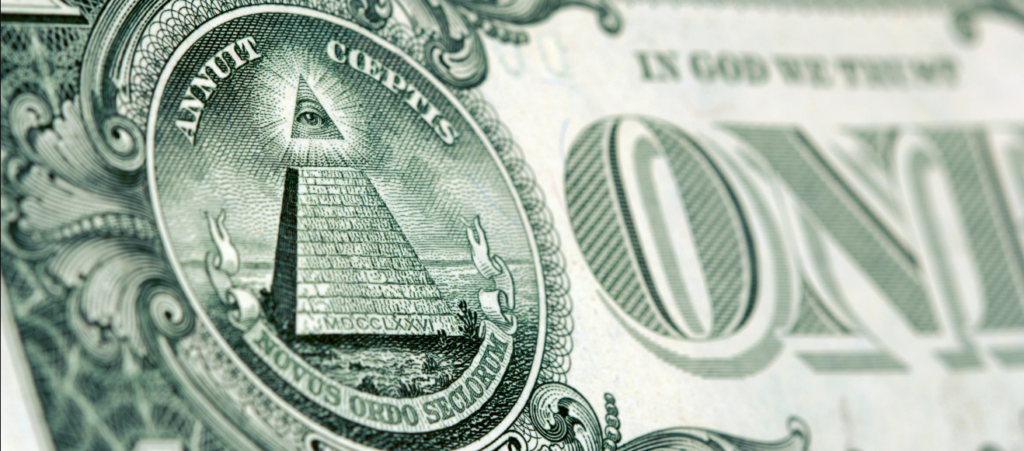As we stand at the precipice of the future, the embers of our campfires casting a flickering light over the remnants of what was once called Western Civilization, we find ourselves tracing the shadowy outline of our own downfall. Like a disorienting hallucination that leaves you questioning reality, this phantom that we refer to as the financial economy seeped into the fabric of our society, an insidious parasite that fed off the real economy.
The real economy, robust and teeming with life, was based on tangible things – on making and doing, on physical products birthed from the womb of the natural world, accelerated and amplified by the power of fossil fuels. An incessant celebration of creation and production, of making and doing, spanned over two centuries. Even amidst cyclical recessions, the production surged forward, birthing products that grew more abundant, intricate, and sophisticated.
A Parasite Clinging to Progress
This phantom financial parasite, its existence intertwined with its host, grew accustomed to this relentless growth. As the real economy expanded, the parasite evolved, developing more crafty and complex methods to drain the life force from its host. As it grew, it threatened to overshadow its host, a gargantuan entity that began to bend the back of the real economy under its weight.

This era of unprecedented growth had a peculiar effect on our minds, largely unchanged since the days of hunting and gathering. A century after the advent of the fossil fuel era, we found it challenging to distinguish between the host and the parasite. The real economy produced food and useful things, while the financial economy produced money – a tool to acquire those goods.
As the wheels of production spun faster and faster, we began to construct more sophisticated tools and machines, allowing us to grow more food and create more useful things that offered comfort and convenience. Simultaneously, the financial economy continued its relentless production of money and devised increasingly abstract ways to represent this wealth.
Unraveling the Threads of Reality
In the beginning, these representations of wealth, such as stocks and bonds, were firmly tethered to the real economy’s activities, drawing their sustenance directly from the host’s productive endeavors.
However, as time passed, these representations became more detached, more abstract, and more reliant on promises, hopes, and wishes rather than things grounded in the natural world. This shift led to a blending of the real and the unreal, a dangerous mix that proved fertile ground for fraud and deception.
Every tale, however, has its beginning, middle, and end. As we neared the end of our fossil fuel supply, the foundation of our making-and-doing model began to fracture. The colossal phantom that the financial economy had become was now overwhelmed with unreality, its functions so disconnected from nature that its phantom nature could no longer be denied.
A New World Order
Desperate to keep its host alive, the financial parasite regurgitated some of its ill-gotten gains, a toxic mix of money based on unreal promises, hopes, and dreams. The resultant economic malaise was so profound that making-and-doing all but ceased. This marked the beginning of the end for the financial phantom, as humans began to see it for what it truly was – an hallucination dissolving into the ether.

Even as the financial hallucination dissipates, the remnants of the great age of making-and-doing linger. We remain ingenious and resilient creatures, capable of repurposing the remaining useful things to nourish ourselves and continue making useful things.
However, the scale and intensity of this new making-and-doing will be a far cry from the past, a quiet interlude from the frenzied activity of our history. It’s conceivable that, over time, we might discover new ways to extract more from nature, but it’s equally possible that we won’t.
As we stand at the cusp of this transition, a sense of unease pervades millions of minds. The inevitable journey from one state of being to the next has left many distraught and disoriented. Some have responded with obnoxious behavior, creating discord and chaos. But even amidst the tumult, it’s essential to remain focused on the tasks at hand – our own making and doing within the realm of what’s real and tangible.
The Resilience of the Human Spirit
Perhaps, it’s time to pause and engage in activities that nourish our souls. There are still plenty of good instruments around; we can make music and sing songs. Let’s gather our friends and loved ones, cook a meal together, and raise our voices in song.
After all, as Bob Dylan sang, “It’s all right, Ma, it’s life and life only.”
In the aftermath of the financial hallucination, we find ourselves rooted in nature once again. Western Civilization was the first to tap into the fossil fuel bounty, and now it’s the first to exit this phase of history. As we look towards the future, we see a world where fewer, healthier humans work directly with nature, unburdened by the toxic byproducts of bygone making-and-doing.
A Call to Action
The process may be daunting, but humans have proven their resilience time and time again. There’s a sense of hope as we emerge from the shadow of the financial phantom, with a renewed appreciation for the real and tangible.
The parasitic era of the financial economy is behind us, and we have the opportunity to forge a new path, one grounded in nature and reality.
Let us not forget the lessons learned from the phantom parasite that was the financial economy. Let’s embrace the reality of making-and-doing and reject the illusion of ungrounded wealth. After all, it’s our actions within the realm of reality that will shape the course of our future.
So, let’s roll up our sleeves and focus on the tasks ahead, embarking on this new era with determination and a renewed sense of purpose.
We have a world to rebuild.


